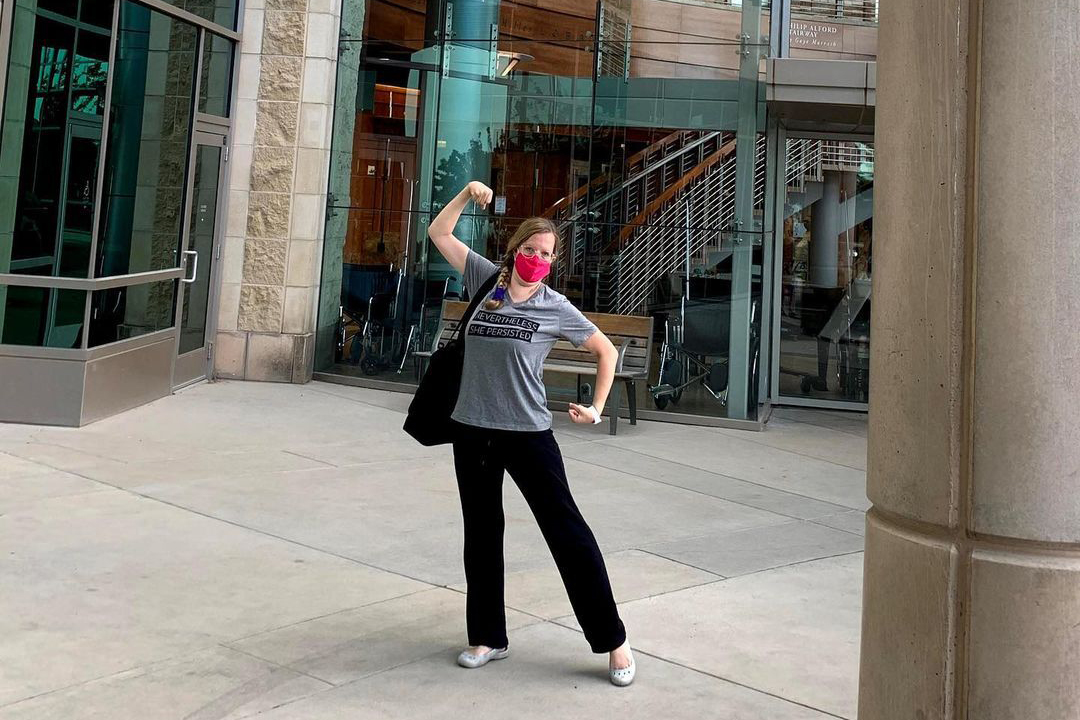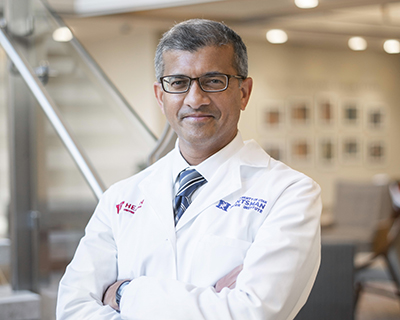
In June 2020, Jan Bates was diagnosed with papillary thyroid cancer and began treatment at Huntsman Cancer Institute (HCI) at the University of Utah (U of U).
"It was hard because I had to have surgery all by myself," Jan says. "I had my thyroid and 64 lymph nodes removed and nobody could come into the hospital—you couldn’t have any visitors at that time. The staff knew it was hard for people, though, so they were super compassionate."
A month after her surgery, Jan underwent radioactive iodine treatment, which requires the patient be separated from others for seven days. "I already felt so isolated because of the pandemic. The only people I could see when quarantining were my family, and I had to be apart from them for a week. That was really tough, but we made it out on the other side. In February 2021, I had my scans and [the cancer] was all gone. I don’t have any recurrence so far."
Because Jan had been diagnosed with cancer, she was eligible to receive the COVID-19 vaccine earlier than others. She knew getting the vaccine was important so that she could not only protect herself, but also those around her. Now, as COVID-19 rates are again rising in Utah, Jan knows it isn’t enough that she’s vaccinated—she is counting on other Utahns to get vaccinated too.
"Your immunity serves as a robust surveillance system continuously monitoring your body for infection," says Sachin Apte, MD, MS, MBA, chief clinical officer and physician-in-chief at HCI and professor of obstetrics and gynecology at the U of U. "Some cancer patients have suppressed immune systems due to either cancer treatments or the cancer itself. These are some of the factors that make cancer patients particularly vulnerable to COVID-19."

Over July 2021, the number of COVID-19 cases have been rising in Utah. Doctors are urging everyone to get vaccinated if they haven’t already done so.
"Unless someone is ineligible due to age restrictions or has a medical exception, I recommend getting vaccinated," says Apte. "Those who remain hesitant should speak with their doctors and seek reliable information. Every single person who becomes fully vaccinated contributes to our society taking one more step closer to controlling the pandemic so we can return to normal life. In the end, it’s a personal decision—but one that could have significant consequences to you, your family, and your community."
Jan remembers watching the COVID-19 numbers closely during her treatment and did everything in her power to stay healthy. Cancer and cancer treatments may suppress the immune system, making these specific patients more vulnerable.
"To think you have this major risk to your health just because someone else was irresponsible and didn’t stay home or didn’t get vaccinated—that scared the heck out of me," says Jan.
Apte explains that earlier in 2021, when the pandemic started to ease and vaccination rates were rising, HCI and University of Utah Health increased cancer services as patients began to re-engage in their health care.
"The current surge in COVID-19 cases places additional pressures on an already strained health care system," Apte says. "It has strained resources such as inpatient and critical care beds and operating rooms. We have deployed many health care workers to make sure we have sufficient ability to care for the needs of our cancer patients. But the more people who are vaccinated, the faster the pandemic can be controlled with fewer opportunities for deadly mutations. Simply put, vaccination saves lives and speeds up our society’s ability to get back to normal."